The date was confirmed in a press release issued on the website of ITLOS last Tuesday.
Cote d’Ivoire has called for the cessation of all activities, including oil exploration on the disputed maritime boundary, untll the hearing of the substantive case, which is set to be settled in 2018.
Legal and technical representatives from both countries battled it out at ITLOS’s Special Chamber in Hamburg, Germany, on March 29 and 30, 2015.
Oil battle
The conflict began from boardrooms via threatening letters to oil companies to stop operating, but Ghana took the bull by the horn in September, 2014 when it dragged Cote d’Ivoire to the ITLOS for final resolution of its neighbour’s claims over portions of Ghana’s oilfields and adjoining seabed.
After 10 failed attempts at negotiation between both countries, Ghana went to ITLOS under the United Nations Convention on the Law of the Sea (UNCLOS), seeking a declaration that it had not encroached on Cote d’Ivoire’s territorial waters.
Ghana filed its suit based on Article 287 Annex VII of the 1982 UNCLOS.
Cote d’Ivoire, in February 2015, filed for preliminary measures urging the tribunal to suspend all activities on the disputed area until the definitive determination of the case, dubbed: “Dispute Concerning Delimitation of the Maritime Boundary between Ghana and Cote d’Ivoire in the Atlantic Ocean.”
Implications
Ghana maintained that Cote d’Ivoire began issuing ominous letters to oil companies operating in the disputed area after millions of dollars had been invested to develop the affected oilfields.
Exploration and exploitation work on the Tweneboah-Enyera-Ntoumme (TEN) project being operated by Tullow Oil Plc and its partners would be gravely affected should the tribunal order for a suspension of all activities, it said.
Cote d’Ivoire’s request
A 27-page application from Cote d’Ivoire, signed by its Minister of Petroleum and Energy, Mr Adama Toungara, urged the tribunal to halt all ongoing oil exploration and exploitation operations in the disputed area.
It also prayed the tribunal to direct Ghana to refrain from granting any new permit for oil exploration and exploitation in the disputed area.
Another prayer was an order directed at Ghana to “take all steps necessary to prevent information resulting from past, ongoing or future exploration activities conducted by Ghana, or with its authorisation, in the disputed area from being used in any way whatsoever to the detriment of Côte d’Ivoire”.
It further asked the tribunal to direct Ghana to refrain from any unilateral action entailing a risk of prejudice to the rights of Côte d’Ivoire and any unilateral action that might lead to aggravating the dispute.
Cote d’Ivoire argued that it would suffer severe and irreparable economic injury if its request was not granted by the tribunal.
Arguments at ITLOS
Cote d’Ivoire accused Ghana of attempting to prejudice the tribunal’s upcoming decision by going into the merit of the case with volumes of documents and witness statements, but Ghana faulted its neighbour for departing from the law, making baseless accusations, being inconsistent and failing to produce witnesses and expert evidence.
Ghana also reminded Cote d’Ivoire of its lack of consistency and merit in filing for preliminary measures.
The absence of credible data and evidence from Cote d’Ivoire, according to Ghana, was due to that country’s handicap in producing factual documents to back its case.
Ghana’s position
Ghana, which was led by the Attorney-General and Minister of Justice, Mrs Marietta Brew Appiah-Opong, also reminded the tribunal of Cote d’Ivoire’s failure to challenge the evidence of its technical witnesses which, according to it, summed up to shred Cote d’Ivoire’s case.
“We invite you to firmly decline the application before you,” Mrs Appiah-Opong said, with the argument that Cote d’Ivoire had failed to prove that Ghana had encroached on Cote d’Ivoire’s territorial waters to warrant the stoppage of activities, including the exploration of oil in the disputed area, until the final determination of the dispute.
“There is no justification in law, logic, fairness or on the evidence for the measures sought. They will be unprecedented, an invasion of sovereign rights that stand in the face of representations made by Cote d’Ivoire for more than four decades, on which others and we have relied,” she stressed.
Leading a team of local and international lawyers and technical staff from relevant agencies, Mrs Appiah-Opong told the ITLOS’s five-member panel that “until Ghana was well advanced with its oil exploration programme on its side of the boundary, there were no difficulties.
“ At the time when Cote d’Ivoire had much more oil and gas production than Ghana, there were no claims about moving the maritime boundary.
“In 2009, Cote d’Ivoire started to make representations to Ghana about its desire to alter the boundary. Yet its public position did not change. None of its inconsistent positions has any proper justification in law,” she said.
Panel
The tribunal is presided over by Judge Boualem Bouguetaia, with Judge Rudiger Wolfrum, Judge Jin-Hyun Paik, Judge Thomas Mensah and Judge Ronny Abraham as members.
Judges Mensah and Abraham were appointed by Ghana and Cote d’Ivoire, respectively, in accordance with the rules of the tribunal.
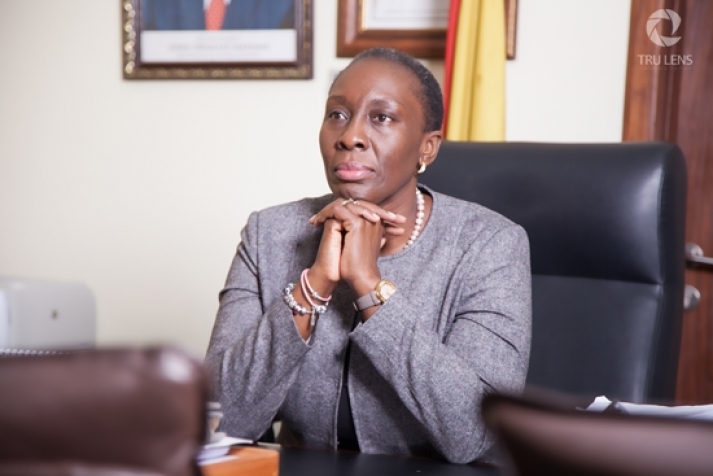
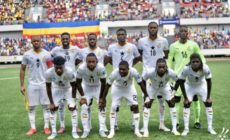
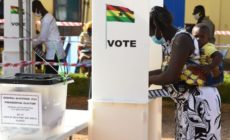
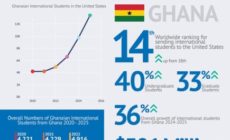
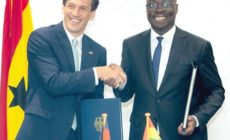






 (Selorm) |
(Selorm) |  (Nana Kwesi)
(Nana Kwesi)